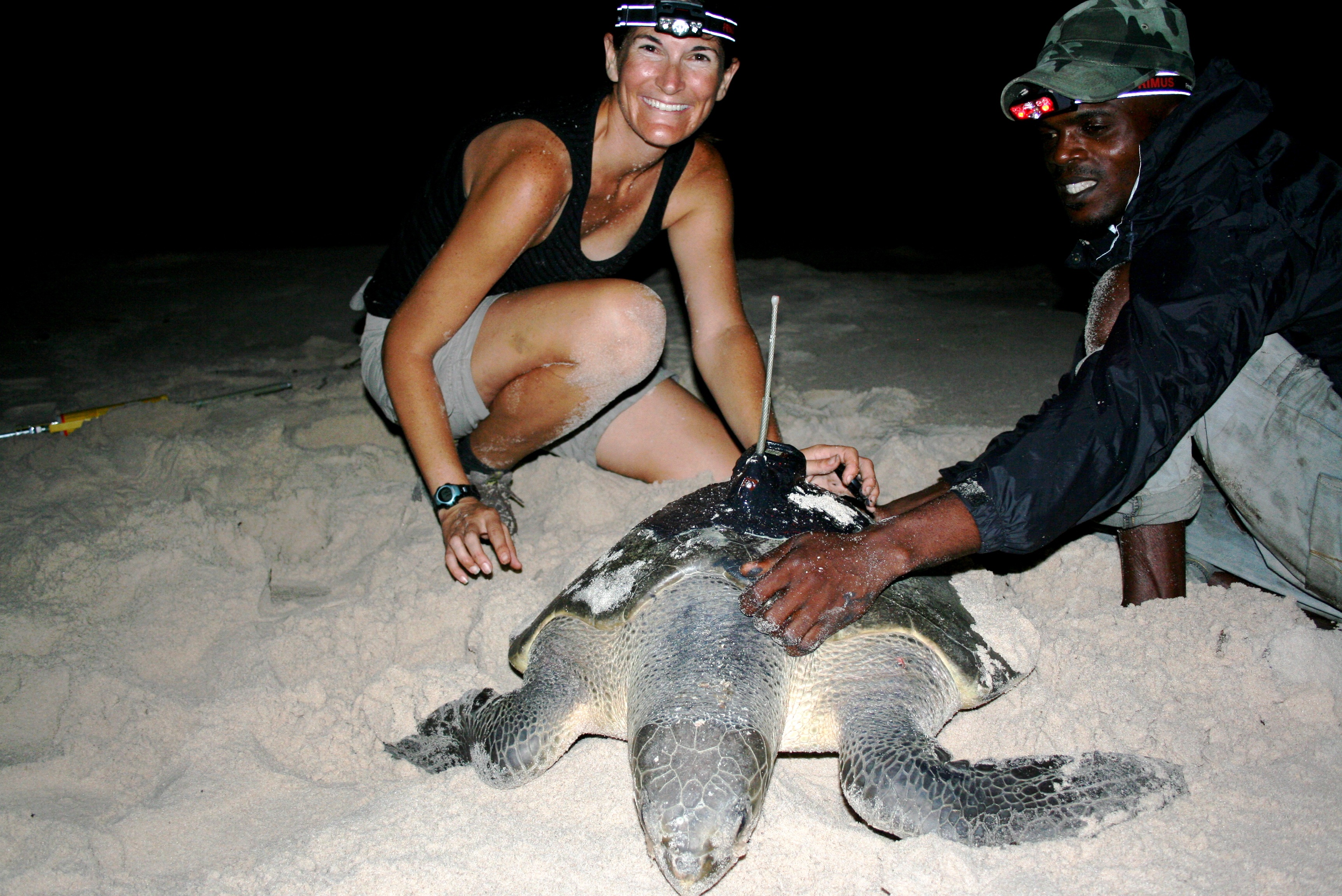Biologist Sara Maxwell’s Bycatch Research Improves Fishery Management
January 12, 2016
 Sara Maxwell co-authored the study of bycatch fishery data with Duke University researchers.
Sara Maxwell co-authored the study of bycatch fishery data with Duke University researchers.
By Tom Robinson
Bycatch is a waterman's nemesis. When untargeted, and sometimes even endangered, sea species such as turtles and dolphins inadvertently end up in fishing gear, it can be costly for marine biodiversity as well as fishermen's profits.
Assistant Professor of Biological Sciences Sara Maxwell of Old Dominion University directs research toward using real-time analytics to reduce bycatch, while expanding the area and times of the year where fishermen can safely harvest.
A peer-reviewed study co-authored by Maxwell and lead researcher Daniel Dunn of Duke University - published Jan. 6 in Proceedings of the National Academy of Sciences - proves the growing use of dynamic ocean management can take a significant bite out of bycatch, and can help improve traditional static strategies.
"The speed at which we can now collect and share data means we can communicate in real time, or near real time, when bycatch species are sighted or conditions are right for their presence," Maxwell said. That enables fishermen to move to other areas and avoid expensive problems such as exceeding bycatch quotas.
"The big thing about this study is it shows, 'Yes, this really works,'" Maxwell said. "We're not just waving our hands anymore saying, 'This seems like a good idea.' ''
The collaborative study, using bycatch data compiled in the U.S. Northeast Multispecies Groundfish Fishery, shows dynamic management can reduce the size and duration of fishery closures - and potentially save fishermen money while better protecting bycatch species.
While this study used historic data for the Northeast Multispecies Groundfish Fishery, dynamic management is ongoing in a number of fisheries, and makes use of a variety of technological devices - from email to smartphone apps - to share data in near real time.
Maxwell cited her similar ongoing work with the Pacific Fishery Management Council and the National Marine Fisheries Service where the goal is to reduce bycatch of several species, including endangered leatherback turtles, while opening up greater area to fishermen.
"Currently, the area where they cannot fish is huge, and spans some of the most profitable areas and times of the year," Maxwell said. "And it may be unnecessary. The idea is to make regulations a bit more refined. Fishermen are very excited about it."
More than seven million tons of marine life are caught incidentally every year, according to the Consortium for Wildlife Bycatch Reduction. For fishermen, it is a worldwide systemic problem that damages equipment, reduces catch and imposes restrictions that threaten economic survival.
Maxwell, who calls herself a sustainability ecologist, also works in the West African nation of Gabon to prevent bycatch of olive ridley turtles in the region's fisheries.
Gabon has announced plans to create a system of marine protected areas totaling over 20 percent of its waters. Maxwell works there with ODU graduate student Tiffany Dawson. They use satellite tracking devices attached to the turtles to chart their location, diving behavior and environment.
The turtles can be tracked here and also can be adopted to help fund research. The data is used to determine where turtles spend the majority of their time, and where protected areas can be most effectively placed to manage fisheries.
Andre Boustany and Patrick N. Halpin of Duke's Marine Geospatial Ecology Lab also co-authored the study featured in the Proceedings of the National Academy of Sciences.

